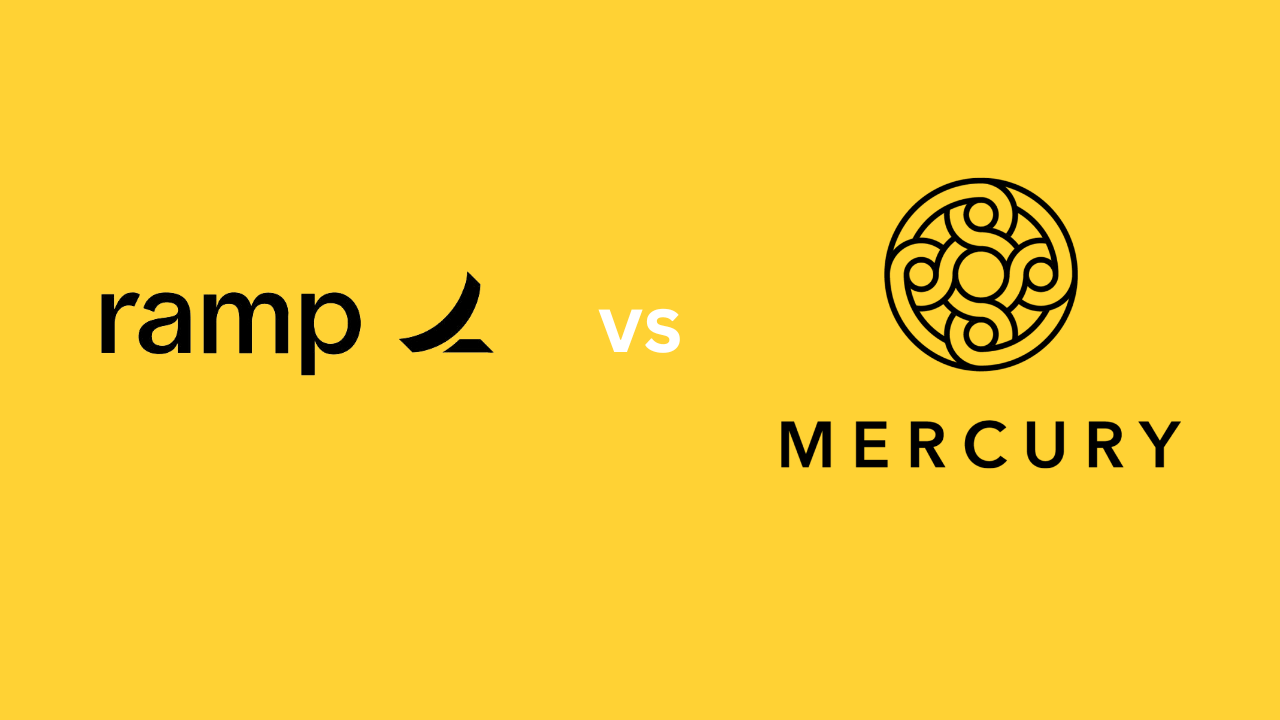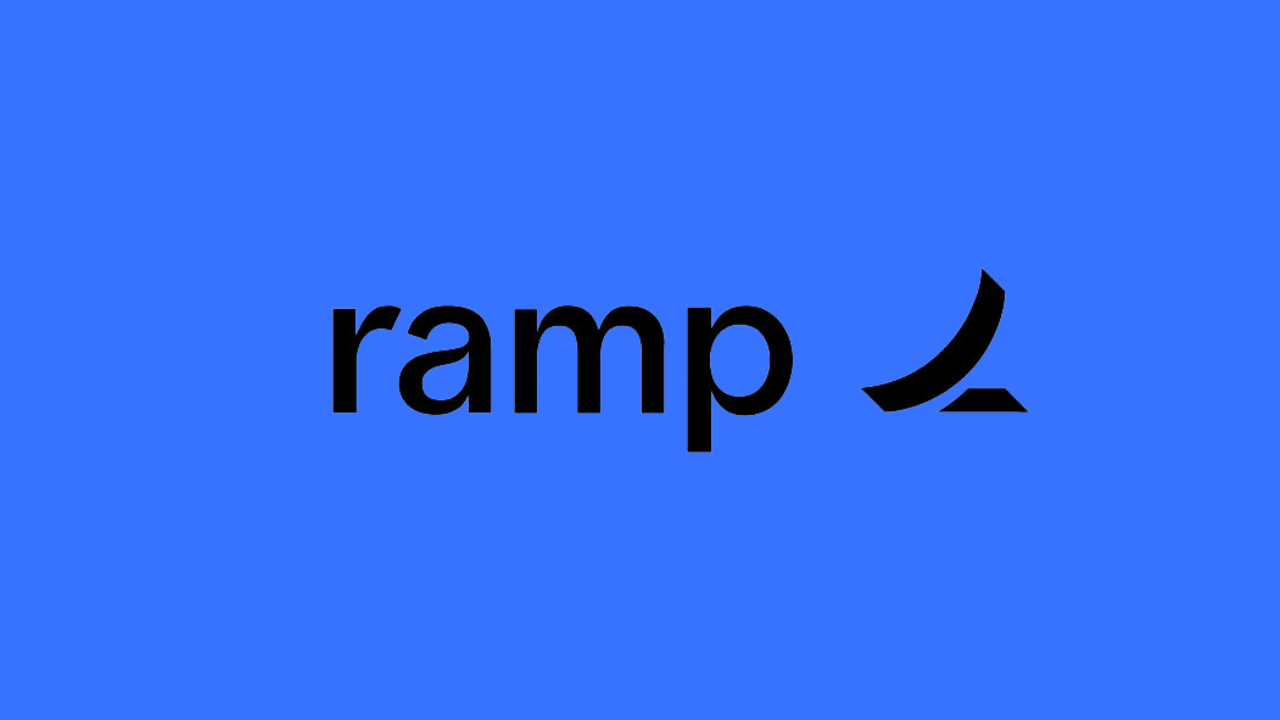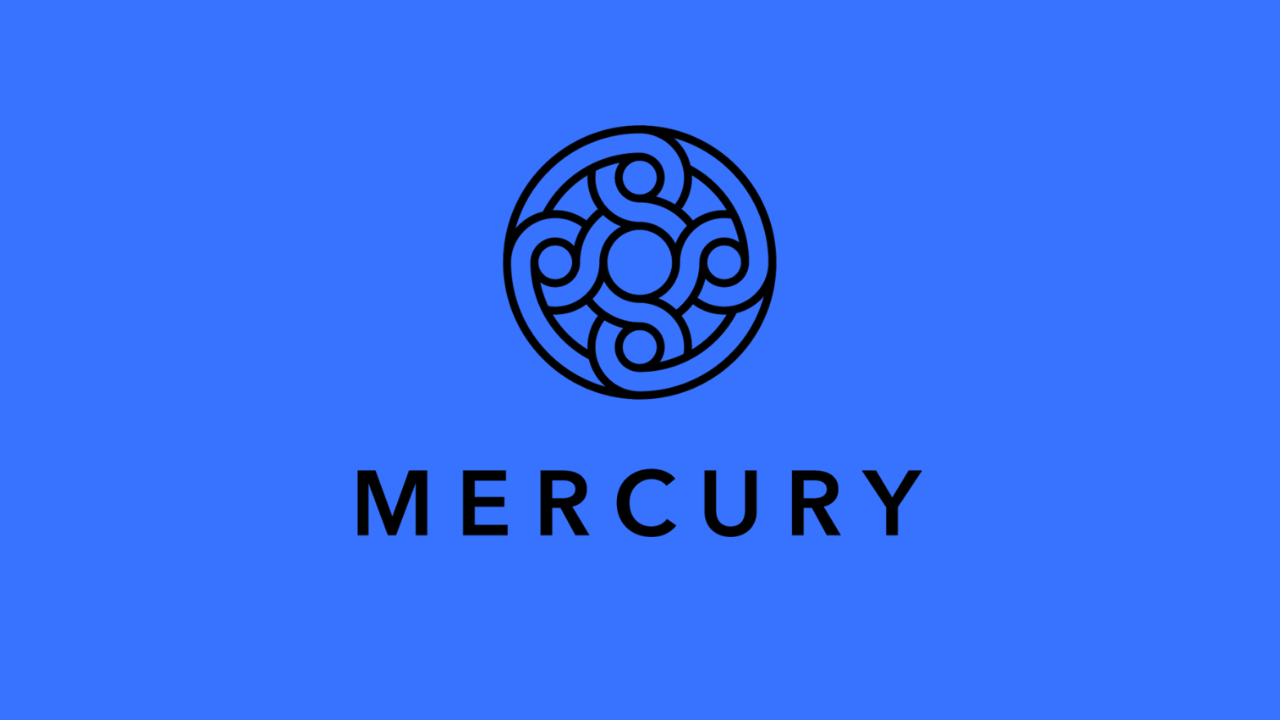Language:
Ramp vs Mercury: Which One is Better to Use?

Ever feel like your business finances are stuck in the slow lane? We understand. Juggling corporate cards, expense reports and approvals can eat up your valuable time and resources. That’s where fintech companies like Ramp and Mercury come in.
Such platforms promise to streamline your finances with sleek online portals and innovative tools. But with both vying for your attention, choosing the right one can be tricky.
This article will cut through the clutter to help you decide between Ramp and Mercury. We’ll break down their core features and what kind of businesses they cater to best.
By the end, you’ll be ready to pick the one that will help your company shift gears for maximum financial efficiency.
What Is Ramp?
Ramp is a fintech company that puts your business finances on autopilot. Its all-in-one platform combines a corporate card, expense management tools and bill payments into a single, sleek interface.
Just imagine ditching the paper mess, the endless expense reports and the constant struggle to keep track of everything! That’s the idea behind Ramp — to save businesses time and money. They claim their platform can help reduce manual data entry, eliminate late fees and even earn rewards on business purchases.
What Does It Cost To Use Ramp?
Ramp Plus costs $12 per month/per user, billed annually. A free 30-day trial is also available.
What Is Mercury?
Mercury positions itself as the financial companion for startups and early-stage businesses. Think of it as a one-stop shop for startups’ financial needs, ditching the traditional banking model and offering a tech-driven platform to streamline your company’s finances.
Beyond its core features, Mercury focuses on providing a seamless user experience. Their online platform is known for being intuitive and user-friendly. Thus making it easy for even non-finance folks to manage the company’s money.
Plus, Mercury integrates with popular accounting and business management software, further streamlining your financial operations.
What Does It Cost To Use Mercury?
For advanced features like sending mass payments through their API, managing larger accounts with Mercury Treasury, or dealing with international currencies, there are some additional fees. But the good news is, these are optional.
You can choose the features that fit your business needs and keep your costs under control.
Ramp Features
Corporate Cards
Ramp issues corporate cards to your employees, allowing them to make purchases for your business. But here’s the magic — every purchase made with a Ramp card automatically feeds into the platform, categorizing and tracking expenses as they happen.
Plus, you have complete control over spending with the ability to set limits and permissions for each card issued for your company.
Expense Management
Ramp automates expense categorization. Transactions made with Ramp cards are automatically categorized, saving you and your employees a lot of time.
The platform also simplifies approvals and lets you reimburse employees with a few clicks and the money is in their accounts. So, no more chasing down receipts or wrestling with spreadsheets filled with expense data.
Bill Payments
Stop wasting time writing checks and dealing with manual bill payments. Ramp streamlines your bill payments by letting you pay vendors directly through their platform. This eliminates the need for outdated methods like checks or wires. It not only saves time but also reduces the risk of errors and potential late fees.
Reporting
Ramp offers various reporting features to help you gain insights into your business spending. You can:
- Get a quick overview of your company’s spending with customizable dashboards that can be tailored to your specific needs.
- Track trends in your spending month-over-month to identify areas where you can save money.
- Gain real-time insights into employee trip spending, including location and expense details.
- Easily export your spending data to use in third-party tools for further analysis.
Integrations
Ramp integrates with various popular collaboration and security tools and multiple business bank accounts. These integrations include Gmail, Microsoft Outlook, Uber, Lyft, ADP, Gusto, Slack, and 1Password.
You can also connect Ramp to your existing accounting software. This will streamline your finance operations and automate many tasks, saving you and your team valuable time.
Intelligence
Ramp goes beyond simple expense management. It also offers intelligence features to help you identify areas to save money and optimize your spending. For example, you can set up automated approval workflows to streamline the expense approval process.
Ramp also lets you see where your company’s money is going and uncover areas for savings, helping you make informed financial decisions.
Mercury Features
Cards for Every Need
Mercury equips your team with debit cards for everyday business expenses. It also offers company credit cards with features like spending limits and real-time expense tracking.
This empowers your employees to make purchases without using personal cards while giving you control over spending and clear visibility into expenses.
Banking Services
Mercury lets you pay vendors directly through their platform, eliminating the need for outdated methods like checks or wires. This saves you time, reduces the risk of errors, and helps you avoid late fees.
Treasury Management
As your business grows, Mercury scales with you. Their treasury management tools help you automate tasks like ACH transfers, manage foreign exchange (for an additional fee), and optimize your cash flow. Thus freeing up your time and resources to focus on what matters most — growing your business.
API Access
Take control of your finances with automation. Mercury’s API access lets you connect to every account and unlock advanced features. This includes custom sweep rules, building personalized dashboards, and making mass payments programmatically. It even lets you make 100 free monthly ACH payments and query account data effortlessly.
Mercury Raise
Fundraising just got easier! Mercury Raise is a comprehensive platform that connects you with potential investors. It offers resources like networking, mentorship programs, and access to expert sessions.
You can even compare your software stack with other businesses in the industry using their helpful database.
Mercury Vault
Manage risk and maximize security with Mercury Vault. It extends your FDIC insurance coverage up to $5 million, giving you peace of mind.
The platform also allows you to invest your surplus funds in Mercury Treasury’s Vanguard money market fund, potentially earning additional returns.
Ramp or Mercury: Which One Should You Use?
Choosing the right financial partner is crucial for a startup’s success. Luckily, fintech companies like Ramp and Mercury offer modern solutions for your business. But with both vying for your attention, it’s essential to understand their strengths to pick the right solution for your financial growth.
The Case for Ramp
Ramp might be the perfect fit if your primary requirement is control and deep expense management features. Ramp offers virtual and physical corporate cards that automatically track expenses. Plus, you can set spending limits and permissions for each card, ensuring responsible spending across your team.
Ramp also automates expense categorization, simplifies approvals, and allows you to reimburse employees with a few clicks. It also eliminates the hassle of manual payments by allowing you to pay vendors directly through its platform.
Ramp’s robust reporting tools also offer real-time insights and track trends to identify potential savings. They seamlessly integrate with existing accounting software and popular tools like Slack and Gmail for a unified financial experience.
The Case for Mercury
On the other hand, if you’re looking for a comprehensive platform that goes beyond spending management, Mercury might be the answer. Mercury offers online business bank accounts with features designed specifically for startups and available for both US and international founders. They equip your team with debit and credit cards and provide integrated bill pay to reduce errors and late fees.
Need a funding boost? Mercury offers venture debt specifically tailored for startups. As your business grows, Mercury scales with you. Their treasury management tools help automate tasks and manage foreign exchange.
It even offers API access for automation and a platform called Mercury Raise to connect you with potential investors. Mercury Vault extends your FDIC insurance coverage and lets you invest surplus funds in their money market fund.
Final Verdict
Ultimately, the ideal choice depends on your specific needs. For streamlined spending and expense management, Ramp takes the win. For a comprehensive financial toolkit for global founders and funding options, Mercury shines.
Consider your team size, spending habits, and future growth plans to make the most informed decision for your business. You can even take advantage of their free trials (if available) to see which platform feels more intuitive and aligns better with your startup’s financial goals.
Ready to Launch Your Business?
Are you dreaming of starting your own business but worried about the setup hassle? doola can help! Set up your business in less than 5 minutes with doola’s fast business formation services. Plus, doola makes opening a dedicated business bank account simple, allowing you to manage your finances seamlessly.
To know more about doola’s offerings, grab a free consultation with us today!
FAQs
Does either platform offer traditional banking features?
Mercury offers online business bank accounts with features designed for startups. This includes online banking and integrations with popular business tools.
However, Ramp focuses primarily on expense management and corporate cards, not offering traditional checking accounts.
What if my startup needs funding?
Mercury offers venture debt options specifically tailored for startups. This can be an excellent alternative to traditional venture capital. However, it is important to compare loan terms and suitability for your specific business needs.
What kind of customer support do they offer?
Both platforms offer customer support options, but they might differ in format.
Check their websites to see if they offer phone support, live chat, or email ticketing systems. Choose the one that best suits your communication preferences.
Is there a learning curve to using either platform?
Both Ramp and Mercury pride themselves on being user-friendly platforms. They offer online resources and tutorials to get you started.
However, Ramp’s focus on expense management might have a slightly steeper learning curve for teams unfamiliar with such systems.
Can I use both Ramp and Mercury together?
Yes, you can use both platforms if their features complement your needs. For example, you could use Ramp for its expense management tools and Mercury for its business banking features or venture debt options. However, consider any potential overlap in functionality before committing to both.







